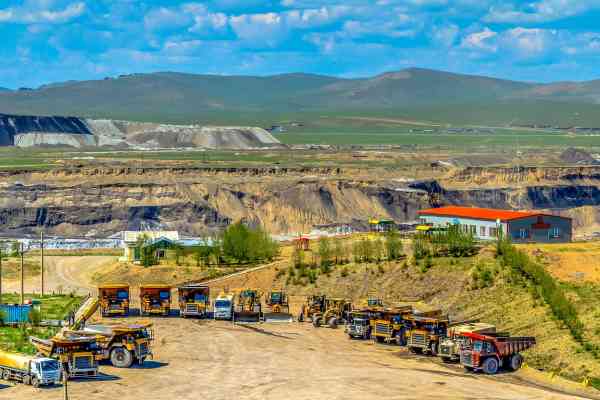March 26th, 2025 | 07:10 CET
Volkswagen, European Lithium, BYD – Lithium as a winner in the crisis: Why analysts are predicting a rally despite the chaos
The global energy transition is catapulting lithium into the spotlight. As an indispensable raw material for batteries, the electrification of mobility and energy infrastructure has fueled demand enormously. But after the hype, prices plunged from record highs to below USD 10,000. Now, there are increasing signs of a trend reversal: Production cutbacks, a predicted demand explosion of around 20% this year, strategic investments by large corporations, and technological leaps in extraction could curb the oversupply. Is lithium on the verge of returning as the scarce "white gold"? The stage seems to be set for a revaluation of the market.
time to read: 5 minutes
|
Author:
Armin Schulz
ISIN:
VOLKSWAGEN AG VZO O.N. | DE0007664039 , EUROPEAN LITHIUM LTD | AU000000EUR7 , BYD CO. LTD H YC 1 | CNE100000296
Table of contents:

"[...] China's dominance is one of the reasons why we are so heavily involved in the tungsten market. Here, around 85% of production is in Chinese hands. [...]" Dr. Thomas Gutschlag, CEO, Deutsche Rohstoff AG
Author
Armin Schulz
Born in Mönchengladbach, he studied business administration in the Netherlands. In the course of his studies he came into contact with the stock exchange for the first time. He has more than 25 years of experience in stock market business.
Tag cloud
Shares cloud
Volkswagen – Between trade conflicts and electric ambitions
The German automotive industry continues to struggle with sales problems, especially in China. Local manufacturers such as BYD are making it difficult for established brands to do business. Although global vehicle exports rose by 2.5% to 3.4 million units in 2024, they are still below pre-corona levels. The US remains an important market with an export share of 13.1%, followed by the UK with 11.3% and France with 7.4%. However, the threat of new US tariffs of up to 25% under the Trump administration is weighing on sentiment. Mercedes CEO Ola Källenius is calling for a mutual reduction in tariffs. Production sites in Mexico could mitigate the effects.
After disappointing quarterly figures and delays with key models from its subsidiary Audi, Audi CEO Gernot Döllner has announced a battery-electric compact car for 2026. The vehicle, positioned in the A3 class, will use Volkswagen's group-wide MEB platform but will impress with its independent drive and digital features. With a starting price of around EUR 40,000, the model is intended to advance the electrification strategy – a crucial step for the profitable premium brand. At the same time, Audi is cutting 7,500 jobs in Germany by 2029 to increase efficiency. The success of this initiative is crucial for the VW Group, which urgently needs Audi as a margin engine.
Volkswagen reported a 31% drop in profits to EUR 12.4 billion in 2024 – driven by fierce competition in China and high restructuring costs. While analysts are positive about the future development of margins, UBS expert Patrick Hummel remains skeptical about a turnaround in the Middle Kingdom. The Company is relying on collaborations with local players such as XPeng and aggressively priced electric models such as the ID.2all for around EUR 25,000. Surprisingly, VW is also considering producing military vehicles to utilize excess capacity. CEO Oliver Blume points to historical know-how. Economists see industry opportunities here. Despite all the hurdles, the Wolfsburg-based company is cautiously optimistic about a planned revenue increase of up to 5%. The share is currently trading at EUR 102.20.
European Lithium - Flagship projects with global appeal
The Australian company European Lithium (EULI) is driving Europe's energy transition with groundbreaking initiatives. The Wolfsberg project in Austria is the only fully approved lithium mine in Europe and is close to production readiness. Sales are guaranteed through the partnership with BMW. Although the project is now owned by Critical Metals Corp (CRML), EULI still holds a 70.4% stake. The BMW contract, for which the Munich-based company made advance payments of EUR 15 million, and the planned refinery in Saudi Arabia with a capacity of 20,000 tons per year underscore the market acceptance. The decision to refine the lithium concentrate in Saudi Arabia offers cost advantages because energy there is six times cheaper than in Europe.
At the same time, the Tanbreez project in Greenland stands out with around 45 million tons of indicated and inferred rare earths with a grade of 0.4% rare earth oxides (REO). Currently, EULI and CRML together hold a 49.5% interest in the project, with the option to increase their interest to 92.5%. Historical drill results were recently published for the first time, showing that the property has a high proportion of heavy rare earths (HREO). The values of the 2 holes were 24 and 28% HREO, respectively. These critical raw materials are key to independence from China. Although EULI recently recorded a half-year loss of AUD 19.4 million, this is due to targeted investments in growth.
In addition to further investments such as the 10% stake in Cyclone Metals, the Company has its own projects in Austria, Ireland, and Ukraine. The Ukrainian deposits hold long-term potential for the post-conflict period. The Company has several catalysts: Lithium for batteries, rare earths for high-tech applications, and strategic partnerships ranging from the automotive to the energy sector. Analysts at First Berlin, therefore, see the potential for multiplication and have issued a price target of EUR 0.14. The stake in CRML alone is currently worth around USD 94 million. EULI's shares are currently trading at AUD 0.042, giving the Company a market capitalization of just AUD 60.7 million, or approximately USD 38.4 million.
BYD - Setting new standards in electric mobility
With its "Super ePlatform", BYD has introduced an ultra-fast charging solution that can charge an electric vehicle with 400 km of range in just five minutes, which is comparable to refueling a traditional vehicle. The technology achieves a peak output of 1,000 kW and thus outperforms current systems such as Tesla's Supercharger (500 kW). The core of the innovation is a 1,000-volt architecture and silicon carbide semiconductors that minimize energy loss. The first models, including the Han L and Tang L, are expected to use the technology as early as this year. At the same time, BYD plans to set up over 4,000 charging stations in China to reduce range anxiety and increase the acceptance of EVs.
BYD's ambitions reach beyond China. The Company is driving internationalization, particularly in Europe, Southeast Asia, and Latin America. With cost-effective models such as the Seagull series and premium vehicles, BYD serves different target groups. The vertical integration – from battery production to vehicle assembly – enables competitive prices. In emerging markets, BYD benefits from little competition and growing demand for EVs. Despite trade barriers, such as EU tariffs on Chinese EVs, the Company relies on local production facilities and partnerships to enter markets such as Hungary or Thailand.
The expansion of the charging infrastructure is ambitious and costly. With an estimated CNY 20 billion (approximately EUR 2.5 billion), the investment could have a short-term impact on cash flow development. Also, fast charging could reduce battery life from 8 to 5 years – a risk to customer satisfaction. In addition, geopolitical tensions and protectionism are making BYD's entry into the US and Indian markets more difficult. Competitive pressure from established manufacturers and Chinese newcomers such as NIO also remains high. Nevertheless, BYD's innovative strength and cost efficiency make it a key player in the race for the mobility of the future. A share currently costs EUR 47.15.
The global energy transition remains a game of giants. Volkswagen is struggling with margin pressure, but is relying on aggressive pricing of e-models and surprising with military vehicles as a potential stopgap. European Lithium is positioning itself as the European hopeful with the approved Wolfsberg Lithium Project and Greenland's rare earth treasures, backed by BMW and Saudi energy advantages. BYD dominates with ultra-fast charging infrastructure and vertical integration, despite risks such as battery wear and protectionism. While the lithium market should slowly turn the corner as demand grows and production adjusts, the question remains as to who will come out on top in the long term in the race for resources and technology.
Conflict of interest
Pursuant to §85 of the German Securities Trading Act (WpHG), we point out that Apaton Finance GmbH as well as partners, authors or employees of Apaton Finance GmbH (hereinafter referred to as "Relevant Persons") may hold shares or other financial instruments of the aforementioned companies in the future or may bet on rising or falling prices and thus a conflict of interest may arise in the future. The Relevant Persons reserve the right to buy or sell shares or other financial instruments of the Company at any time (hereinafter each a "Transaction"). Transactions may, under certain circumstances, influence the respective price of the shares or other financial instruments of the Company.
In addition, Apaton Finance GmbH is active in the context of the preparation and publication of the reporting in paid contractual relationships.
For this reason, there is a concrete conflict of interest.
The above information on existing conflicts of interest applies to all types and forms of publication used by Apaton Finance GmbH for publications on companies.
Risk notice
Apaton Finance GmbH offers editors, agencies and companies the opportunity to publish commentaries, interviews, summaries, news and the like on news.financial. These contents are exclusively for the information of the readers and do not represent any call to action or recommendations, neither explicitly nor implicitly they are to be understood as an assurance of possible price developments. The contents do not replace individual expert investment advice and do not constitute an offer to sell the discussed share(s) or other financial instruments, nor an invitation to buy or sell such.
The content is expressly not a financial analysis, but a journalistic or advertising text. Readers or users who make investment decisions or carry out transactions on the basis of the information provided here do so entirely at their own risk. No contractual relationship is established between Apaton Finance GmbH and its readers or the users of its offers, as our information only refers to the company and not to the investment decision of the reader or user.
The acquisition of financial instruments involves high risks, which can lead to the total loss of the invested capital. The information published by Apaton Finance GmbH and its authors is based on careful research. Nevertheless, no liability is assumed for financial losses or a content-related guarantee for the topicality, correctness, appropriateness and completeness of the content provided here. Please also note our Terms of use.




